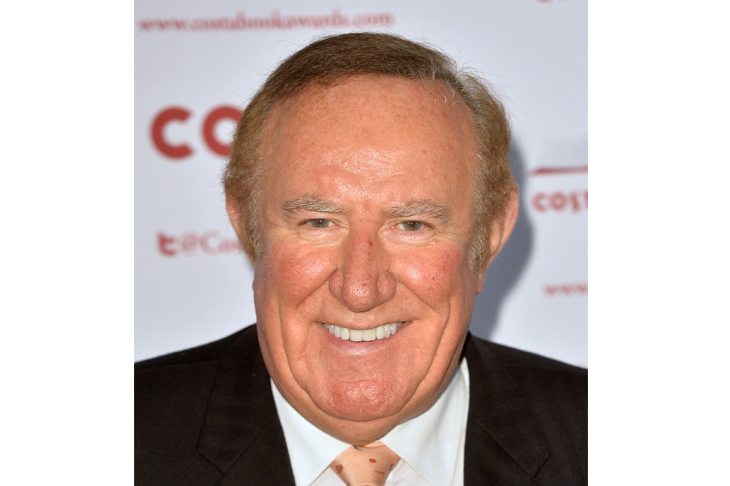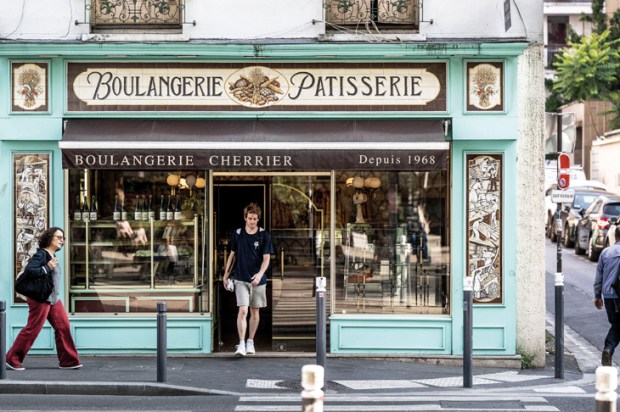When Robert Rintoul founded The Spectator in 1828, he began what is now the oldest publication in the English language. He noted that the purpose of the new magazine was ‘to convey intelligence. It is proposed in The Spectator to give the first and most prominent place to a report of all the leading occurrences of the week.’ It clearly succeeded in living up to that objective, the proof of which is that it has not only survived, while so many other publications have fallen by the wayside, but that it has in the 190 years since 1828 become such a powerful and entertaining voice in British and international affairs.
Very few leading occurrences of any significance in the world occur without their being noted in The Speccie, as the magazine is affectionately known, and, if the occurrence is at all controversial, it will have an opinion that will be heard, respected and regarded as very influential because it will be well-argued and well-written. But when the long and distinguished history of The Spectator is written, not the least of its achievements will be that its proprietors had such confidence in the strength of the publication as to start an Australian edition which, this week, celebrates its 10th birthday.
As it is the 10th birthday of The Spectator Australia, we think some thanks and congratulations are probably in order. First, praise must go to the owner, Press Holdings, which, under the guidance of Andrew Neil, has stood by the magazine and encouraged it at every turn. That has not been easy and there must have been many occasions when the company has had second thoughts about the wisdom of what it was doing. In particular, the concept of printing the whole of the UK edition and on top of that 12 extra pages of exclusively Australian content, and then expecting people to buy it, was a venture so ambitious that Sir Humphrey Appleby would have called it ‘courageous’. But the confidence has paid off; The Spectator Australia has survived, is increasing its subscriber base and sales and occupies a major place in serious public affairs. Secondly, our subscribers and readers have stood by us, adopted the joint publication with enthusiasm and found it to be the affectionate and intimate friend we hoped it would become. It must be a world first in publishing that when we ask our readers to name their favourite parts of the magazine, they cite a few from both the UK and a few from the Australian edition, showing they have taken to the notion of the joint publication with great enthusiasm. It is now a challenge for the future to devise a method by which readers in the UK have as ready access to the Australian content as we have to theirs. Thirdly, there are the editors. Without them, the magazine would have been rudderless and a failure, but the firm hands and guidance of Oscar Humphries, Tom Switzer and Rowan Dean have ensured that it has always been lively and consistently good, maintaining the high literary standards for which it and its parent are renowned. We should also acknowledge our unsung heroes, Sarah Dudley, Anton Emdin and David Follett whose weekly concepts and illustrations for the cover effectively set the magazine’s tone and theme for the week. Fourthly, and with my normal modesty, I must acknowledge the writers, who have maintained such a consistently high standard. When I write, I think: ‘This is The Spectator you are writing for, not some miserable piece of Fairfax nonsense that has sold its soul to a TV station.’ Moreover, the writers have upheld the great Speccie tradition of leavening otherwise serious pieces with wit, humour and flurries into satire and irony well-concealed in other publications which, even in these competitive days, maintain their largely stolid and boring nature. Just look at the mainstream media coverage of politics today, with seemingly the whole of the parliamentary press gallery taking in each others’ washing and a total lack of originality. Moreover, when most magazines and newspapers are shrivelling under the vice-like grip of political correctness and the fear of offending anyone, we have been true to ourselves, tried to tell the story honestly and provocatively and hopefully annoyed a few people on the way through. The writers have also coalesced into a fantastic club: The Spectator may have Pugs Club, of which Taki is a member and Count Bismark the president, but we have The Spectator Australia Long Lunch under a benevolent patron, a vigorous MC and at least one notoriously long-winded speaker: namely, me.
What have been our greatest triumphs over 10 years? I think Rintoul would be proud of us, because we have conveyed a lot of intelligence over the decade. In particular, we have kept the flame of freedom of speech alive, even in the repressive regimes that some of our universities have become. We have exposed the injustices perpetrated on innocent people by the ghastly Human Rights Commission, especially our own Bill Leak and the QUT students. We have exposed bureaucratic excesses and regulations, the waste of taxpayers’ money, the stupidity of becoming a republic in the way the elites have decided for us, and the affliction that the whole country seems to have worshipping the witchcraft of climate change. We have praised the achievements of our own culture and civilisation. We even dared to argue that the party of free enterprise, small government and conservatism might not be best served by having Malcolm Turnbull as its leader. We are proud to give Israel a fair go, so that its case can be heard and we have shone the spotlight on anti-Semitism wherever we find it. That’s a lot of intelligence for 10 years. ‘Now Voyager’, on to the next ten years. We think we have good grounds for saying Happy Birthday, Speccie!
Got something to add? Join the discussion and comment below.
Get 10 issues for just $10
Subscribe to The Spectator Australia today for the next 10 magazine issues, plus full online access, for just $10.
You might disagree with half of it, but you’ll enjoy reading all of it. Try your first month for free, then just $2 a week for the remainder of your first year.















Comments
Don't miss out
Join the conversation with other Spectator Australia readers. Subscribe to leave a comment.
SUBSCRIBEAlready a subscriber? Log in